Where It's Happening
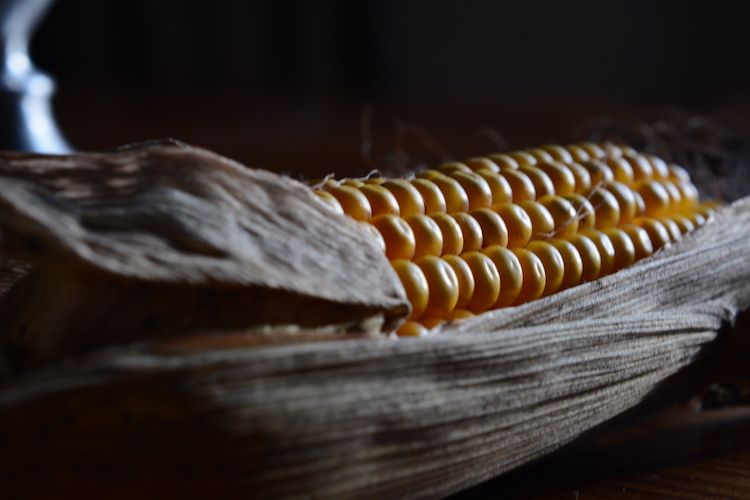
Friday, 23 October
Poor Paris. She has been getting short shrift in this Paris-Perche Diary; Covid-19 keeps getting in the way. First the two months of confinement during which we holed up in the Perche, then the subsequent period when Paris seemed sad and still germ-ier than the countryside and we dosed our urban visits parsimoniously. That situation hasn’t changed—has in fact worsened—but we were supposed to be spending this week in the city and I had planned to boost the Paris half of the blog, until a Covid scare last week has us once again hunkering down in the country. Though the bullet whizzed uncomfortably close to our heads, we are fine and feeling blessed by a second miracle in a short period of time.
Oddly more is happening at the end of the lane in the Perche than in the heart of the capital, especially now that a 9pm anti-Covid curfew has been imposed on the city. Out here the renovation work we have undertaken continues apace. Windows have been added to the barn-in-transition...
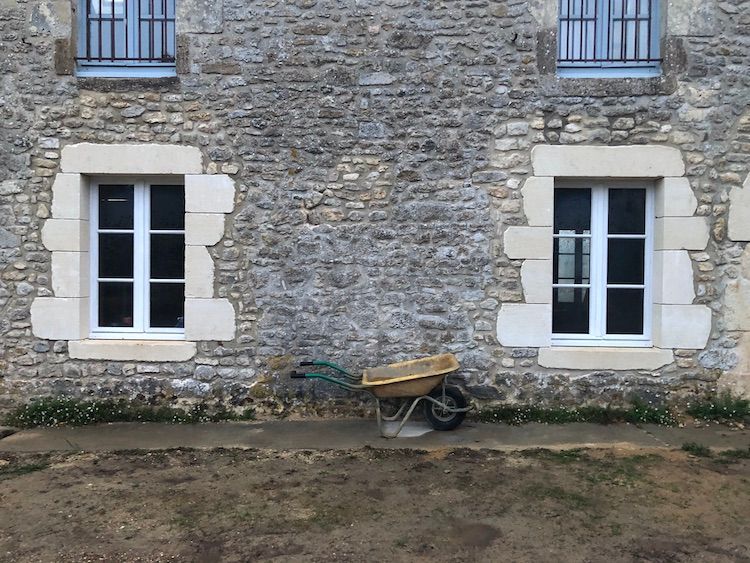
...as has plumbing equipment…
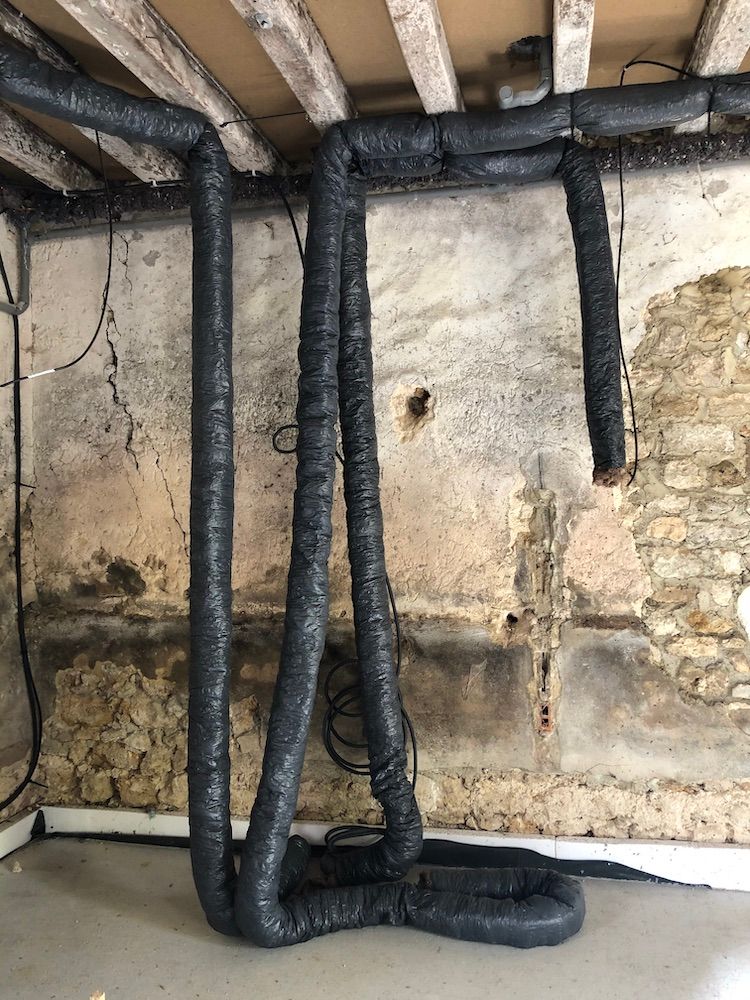
…and wires...
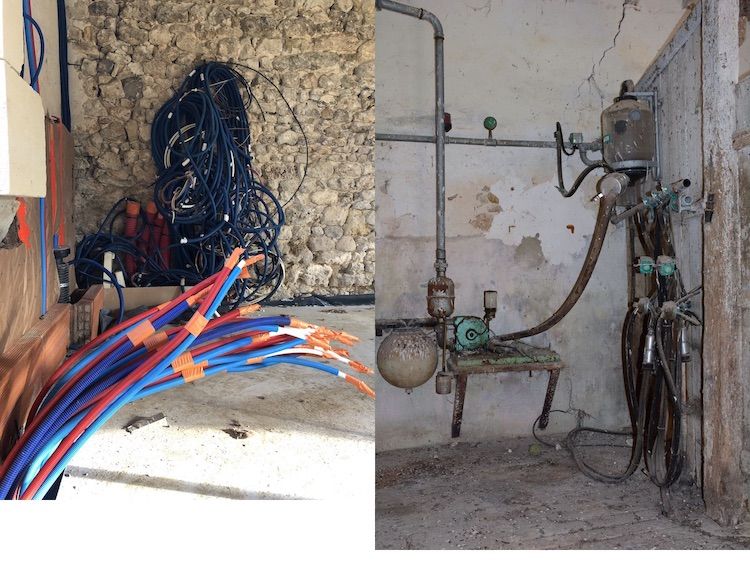
Just yesterday the serpentin for the floor heating was laid...
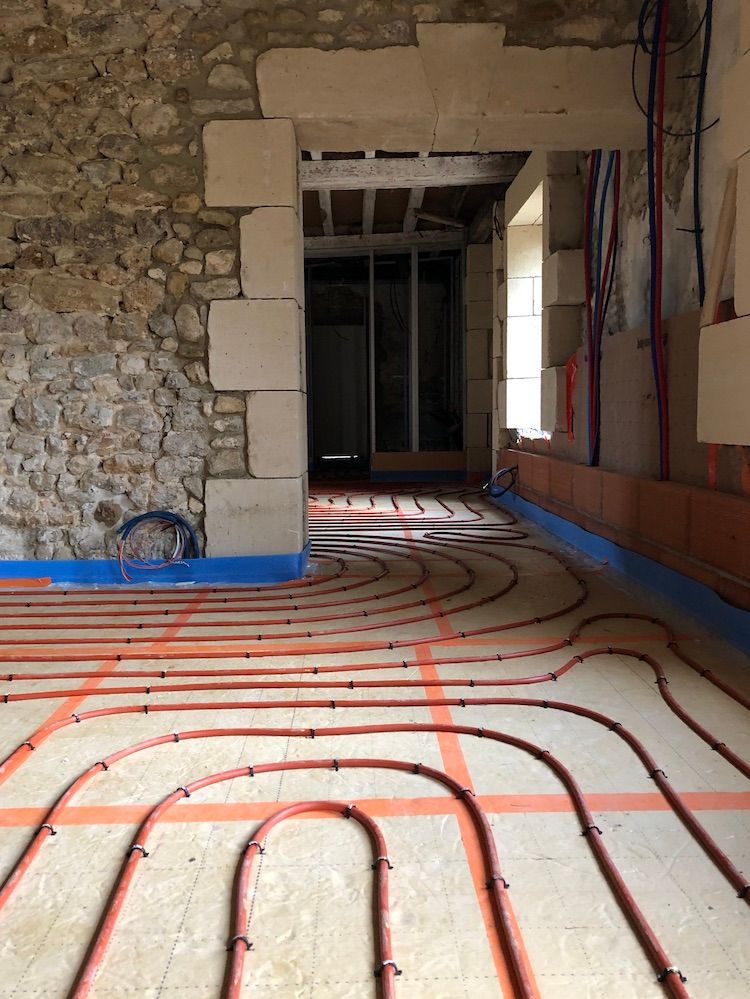
And if we had spent this last week in Paris as planned, we would have missed a momentous event: Monsieur L, from whom we bought the fields surrounding the house and who has continued to cultivate them, conducted his last harvest here at Deux Champs.
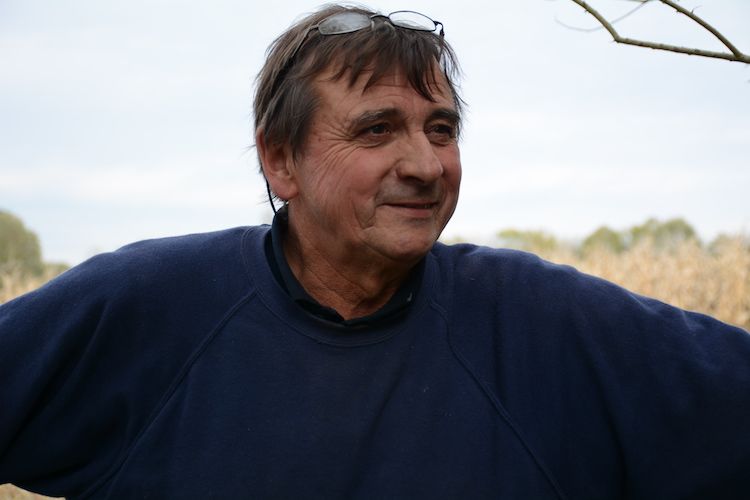
We obviously haven’t known Monsieur L for long, only since we bought the property 18 months ago, but we have felt fortunate in our first contact with the agricultural world that surrounds us here. He is the kind of man who shrugs his shoulders when the boar ravage the edges of his crop for their evening meal. He is expansive and frank and good to his word. "You can take over the land whenever you want," he told us at the signing. "But you should know that we farmers in France can do whatever we like. You can't stop us; we have all the rights."
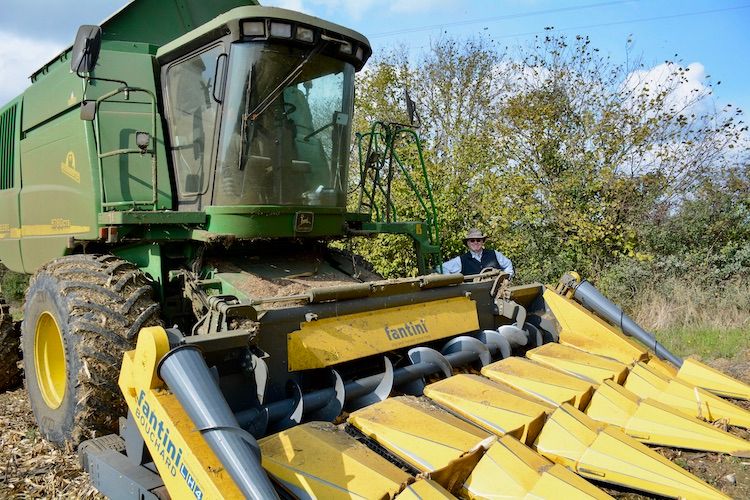
Sunday afternoon the above-pictured machine arrived. David, Tasha and I made a last tour of the two fields. The plants themselves at this point aren't much to behold. This maize is for animal, not human consumption and will be ground into meal, so the more desiccated the better. But we have been watching it grow and ripen; it has been part of our landscape for almost six months now.
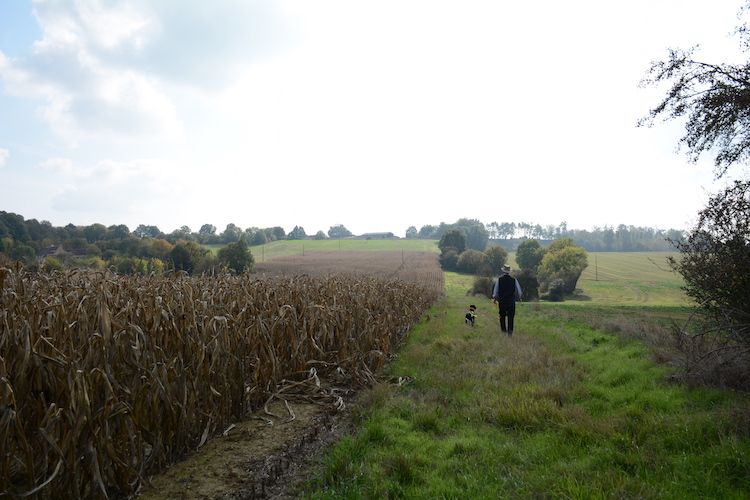
Monday morning work began in earnest. As the yellow cones at the front of the harvester move along, they cut down the plant, remove the ears, extract the grain and spit out the cobs. It’s humbling, to watch a machine multi-task with such proficiency.
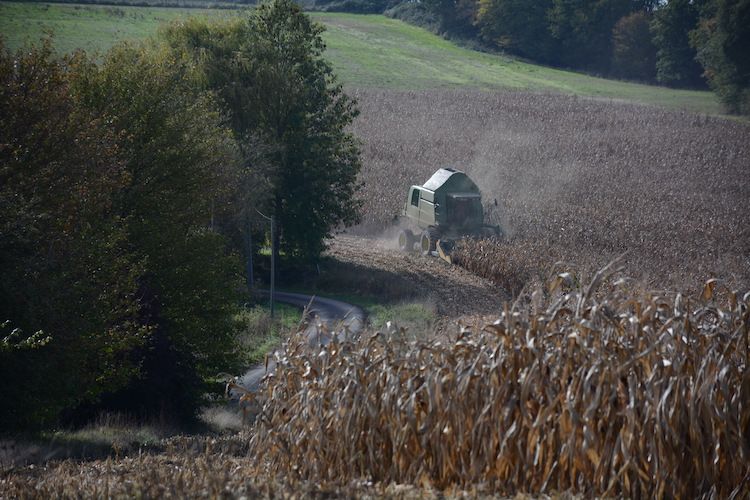
After every couple of rounds, the kernels are spewed out into one of these bins, which when full is hauled away by a tractor to a storage silo.
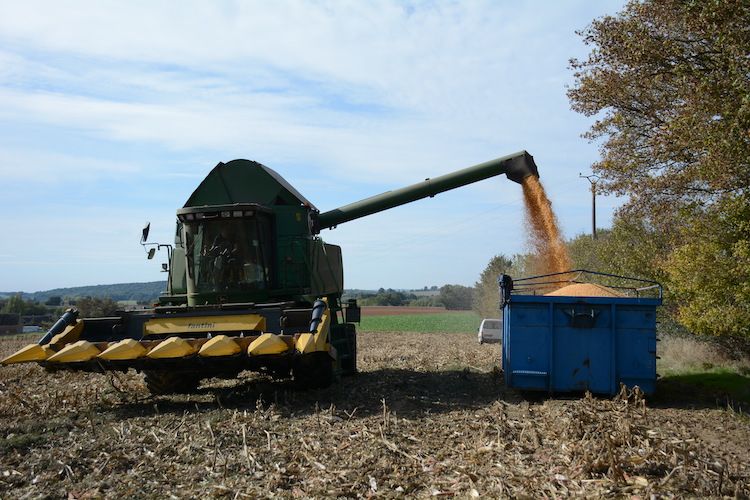
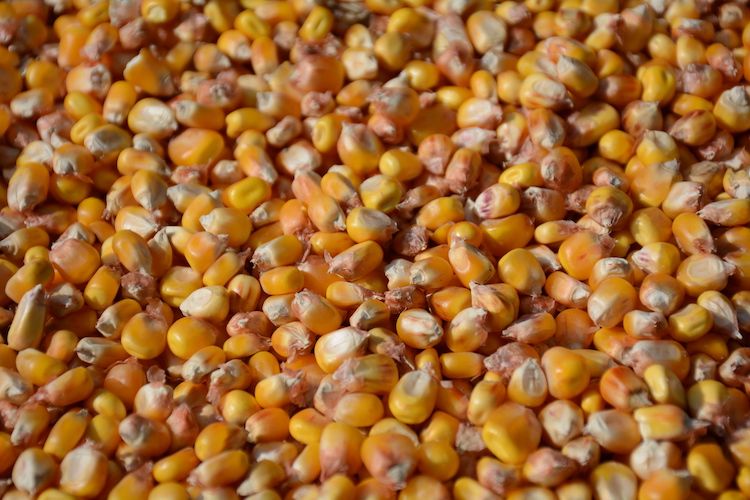
The process feels deeply ingrained in our natures and I say this with no puns intended. Words based on the natural world reflect our symbiotic relationship to the land and what it produces. A harvest strikes a deep chord, even when executed by a monstrous, noisy machine. It's mesmerising.
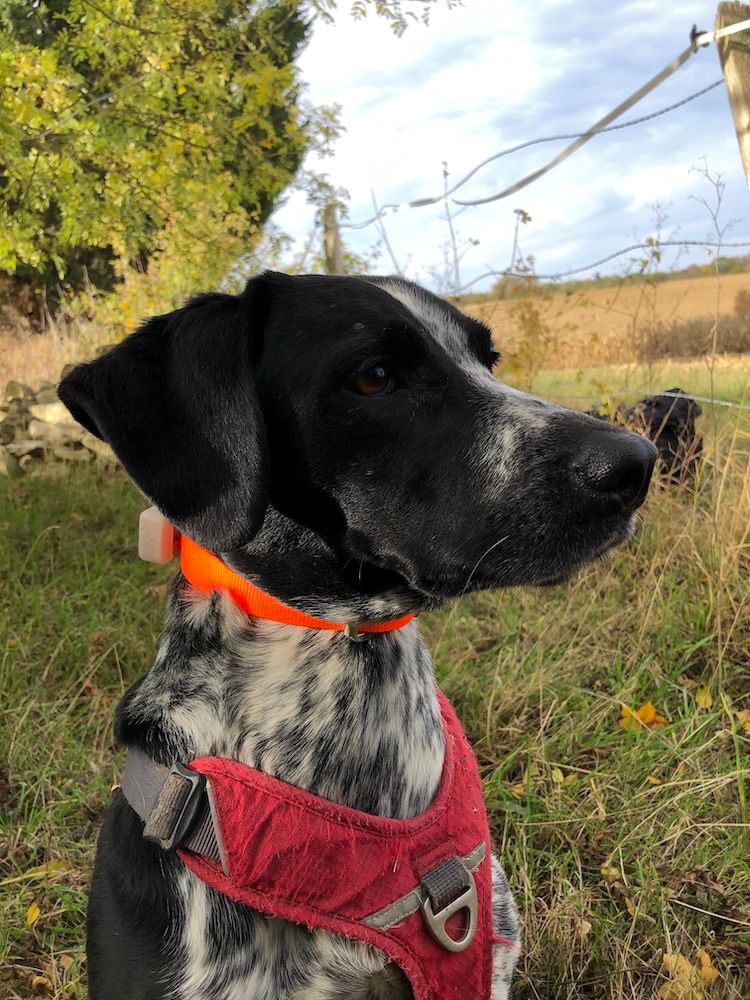
Monsieur L himself appeared late afternoon to witness the last harvest. Like many farmers here, he has patches of land at some distance from his home and the main farm. Along with most of his colleagues, he practises what is known in French as agriculture conventionnelle, an odd term given that it has only been conventional for the last 60 of our 12,000 year agricultural history. It translates as farming with chemical fertilisers and pesticides intended to maximise yield. Though Monsieur L is a moderate user himself, others around us zap the soil repeatedly, leaving fields brown and lifeless for months at a time, with little thought for the collateral damage to flora and fauna.
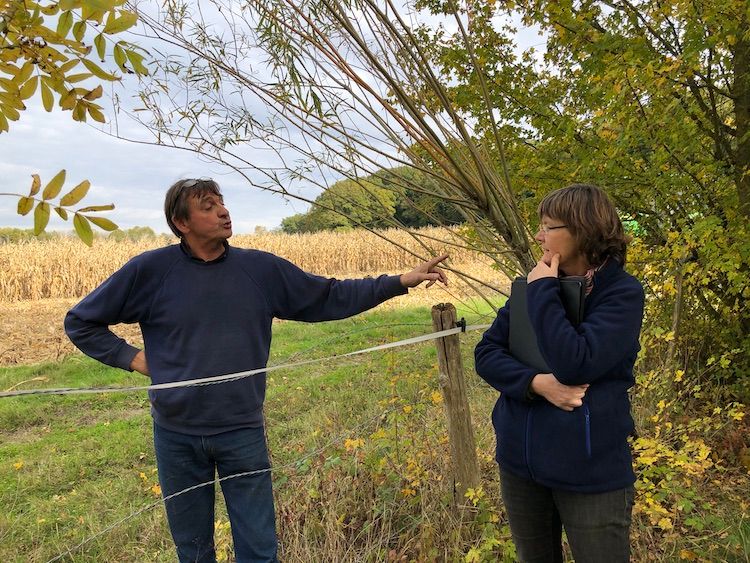
He had some sobering words on the state of his art: "I never thought I would say this but I can't wait to retire. There are fewer and fewer of us farmers, along with more and more administrative nuisances. Last October I couldn't plant the winter wheat because it rained every single day and the machines couldn't get through the mud. This summer, when it hadn't rained in months, the machines couldn't penetrate the rock-hard soil."
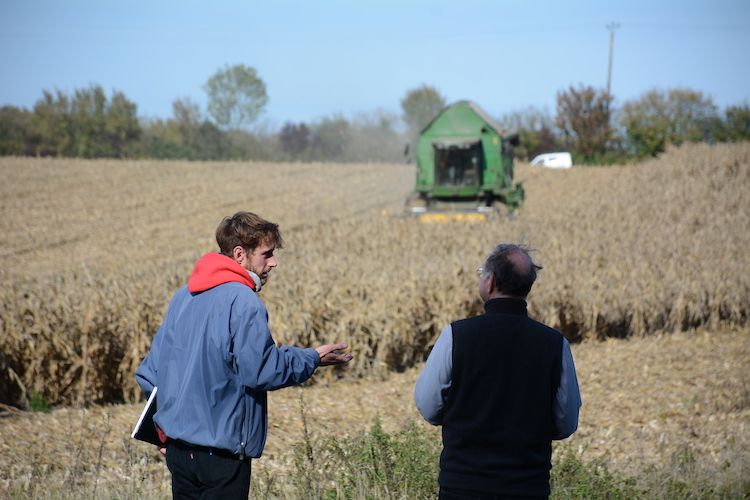
Under the guidance of our green guru Claire and her assistant Estéban, we are cooking up an agro-eco plan that should help resuscitate the earth and hopefully the ecosystem too. Next week the most dynamic organic farmer in the area, Patrice W, will sow crops that will re-inject natural nitrates into the soil. We have talked to the Parc National du Perche and hope they will support efforts to restore a wetland area and replant hedgerows, so many of which have been uprooted over the years in the interest of intensive farming. A young film maker Claire knows is making a documentary about the whole process.
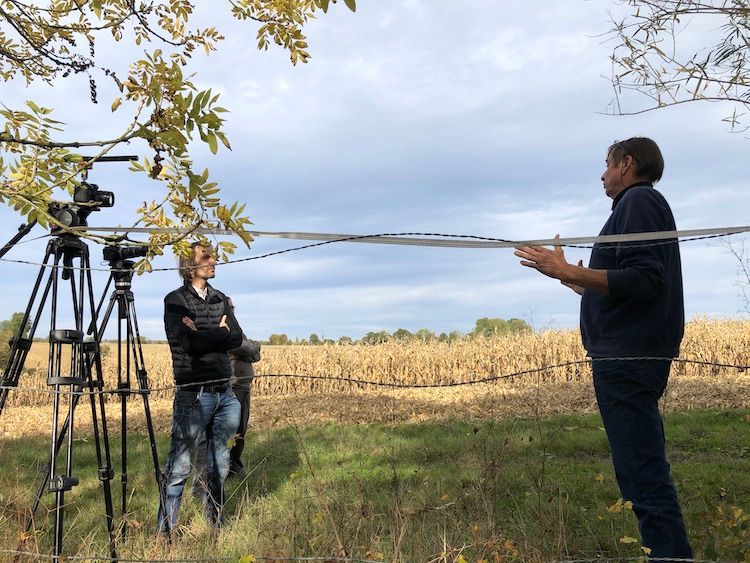
Though all the buzz around us here at Deux Champs is exciting and invigorating, such long absences from Paris do leave me feeling off-kilter. Then again, aren't most of us feeling out of whack much of the time these Covid days? Imbalance and uncertainty seem unavoidable side effects of this insidious disease, ones that we'll all have to learn to live with, at least for the foreseeable future.